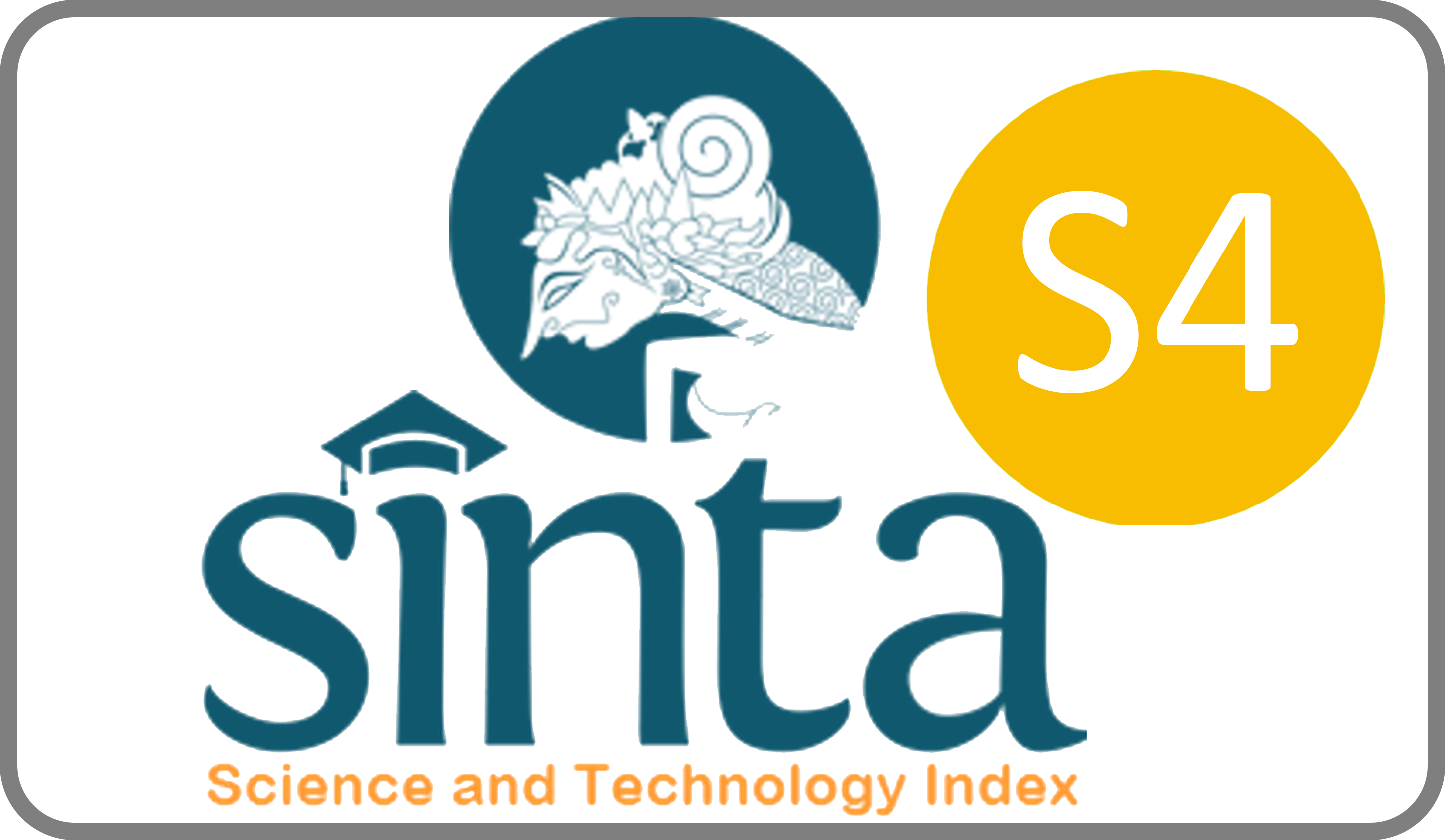PELATIHAN PENGOLAHAN LIMBAH TOILET MENGGUNAKAN FORMULA MIKROBA DI PERUMAHAN TENGGILIS SURABAYA
Downloads
Blockage of septic tanks is one of the problems in the community related to the discharge of toilet waste produced. The use of synthetic toilet cleaners that are not environmentally friendly is one of the factors that can inhibit the process of decomposing organic waste. The existence of microbial killer ingredients in toilet cleaning materials that come into the septic tank will actually inhibit the growth of essential microbes that play a role in the perfection of the decomposition process. Lack of understanding of the community related to microbial processes in the processing of toilet waste is one of the factors inability of the community to overcome these problems. This community service aims to disseminate information related to the processing of organic waste, the role of microbes in the processing of toilet waste, how to make microbial formulas that play a role in the processing of toilet waste, as well as efforts to increase the creativity of the community to process their own waste to improve environmental sanitation and improve community welfare. The results of the training showed that the average pretest and post test scores of the cadres of Tenggilis Surabaya village experienced a significant increase in value with a mean value of 37.78 (pretest) to 62.22 (post-test). Toilet waste processing cadres have been able to make biotoilet products that can be used to process limbat toilets in their homes. The information
and insights they receive can be passed on to the community from each cadre.
Abstrak
Penyumbatan septic tank merupakan salah satu permasalahan di masyarakat terkait dengan buangan limbah toilet yang dihasilkan. Penggunaan pembersih toilet yang berbahan sintetik yang tidak ramah lingkungan merupakan salah satu faktor yang dapat menghambat proses penguraian limbah organik. Keberadaan bahan pembunuh mikroba dalam bahan-bahan pembersih toilet yang ikut masuk ke dalam septik tank justru akan menghambat pertumbuhan mikroba esensial yang berperan dalam kesempurnaan proses dekomposisi. Kurangnya pemahaman masyarakat terkait dengan proses mikroba dalam pengolahan limbah toilet merupakan salah satu faktor ketidakmampuan masyarakat dalam mengatasi permasalahan tersebut. Pengabdian masyarakat ini bertujuan
untuk mensosialisasikan informasi terkait proses pengolahan limbah organik, peran mikroba dalam pengolahan limbah toilet, cara membuat formula mikroba yang berperan dalam pengolahan limbah toilet, serta upaya meningkatkan kreativitas masyarakat untuk mengolah limbahnya sendiri guna meningkatkan sanitasi lingkungan dan meningkatkan kesejahteraan masyarakat. Hasil pelatihan menunjukkan bahwa rerata nilai pretest dan post test kader kelurahan Tenggilis Surabaya mengalami peningkatan nilai yang cukup signifi kan dengan rerata nilai dari 37,78 (pretest) menjadi 62,22 (post test). Kader pengolahan limbah toilet telah mampu membuat produk biotoilet yang dapat dimanfaatkan untuk mengolah limbat toilet di rumah masing-masing. Informasi dan wawasan yang mereka terima dapat di teruskan kepada komunitas asal masing-masing kader.
Indra, Ary. 2014. Limbah Rumah Tangga. https://www.scribd.
com/document/223584927/Limbah-Rumah-Tanggapdf.
Setiawan, Bambang, 2013. Product Knowledge SW Toilet
(Bakteri Pengurai Limbah). http://sw-group.blogspot.
co.id/2013/10/product-knowledge-sw-toilet-bakteri.
html.
JLM by Unair is licensed under a Creative Commons Attribution-ShareAlike 4.0 International License.
1. The journal allows the author to hold the copyright of the article without restrictions.
2. The journal allows the author(s) to retain publishing rights without restrictions
3. The legal formal aspect of journal publication accessibility refers to Creative Commons Attribution Share-Alike (CC BY-SA).
4. The Creative Commons Attribution Share-Alike (CC BY-SA) license allows re-distribution and re-use of a licensed work on the conditions that the creator is appropriately credited and that any derivative work is made available under "the same, similar or a compatible license”. Other than the conditions mentioned above, the editorial board is not responsible for copyright violation.


















